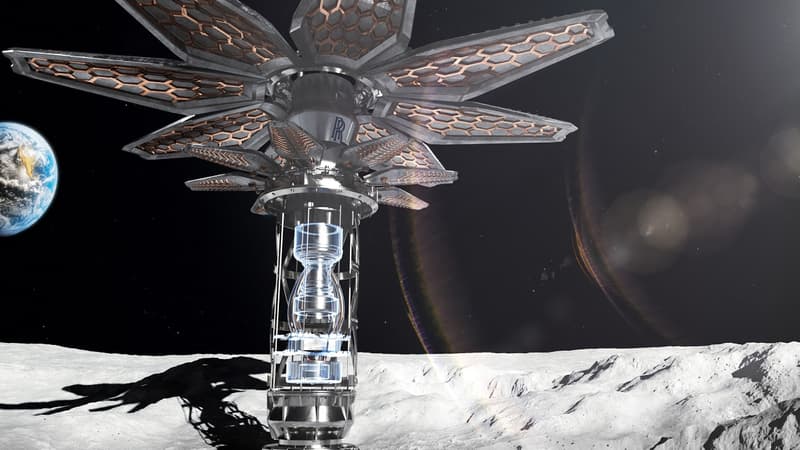British industrial group Rolls-Royce announced Friday that it has received 2.9 million pounds (3.3 million euros) from the British Space Agency to develop small nuclear reactors for future lunar bases. “Rolls-Royce scientists and engineers are working on the microjet program to develop technology that will provide the energy necessary for humans to live and work on the Moon,” the company said in a statement.
The group forecasts that a first reactor, about the size of a car, will be ready to be sent to the Moon in 2029. About 50 years after the last Apollo mission, the return of humans to the Moon is materializing: NASA announced in early March that the Artemis 2 space mission would take astronauts around the satellite in November 2024.
“Increase the duration of future lunar missions”
The Artemis 3 mission, which consists of taking astronauts to the lunar surface, is officially scheduled for 2025. NASA and the company Axiom Space presented this Wednesday in Houston, Texas, a prototype of the new space suit they will wear. “Nuclear power has the potential to significantly increase the duration of future lunar missions and their scientific value,” said Rolls-Royce, who will work with several British universities, including Oxford.
The funding announced on Friday comes on top of the £249,000 provided by the British Space Agency in 2022. This new tranche will allow the company to carry out a first demonstration of a modular lunar nuclear reactor. Rolls-Royce is also developing small modular reactors for the production of electricity on land, particularly as part of the UK’s plans to speed up the construction of new nuclear power plants on its territory.
Britain’s government-run space agency recently failed to launch the first rocket into space from British soil, attached to a Virgin Orbit Boeing 747. The launch, affected by an “anomaly” that prevented the rocket from being put into orbit, was carried out within the framework of a consortium that brings together the British Space Agency, Spaceport Cornwall and Virgin Orbit – a company that announced on Thursday that it was suspending its operations. NASA also announced in January a partnership with the Pentagon to develop a nuclear-powered rocket intended to send humans to Mars.
Source: BFM TV


